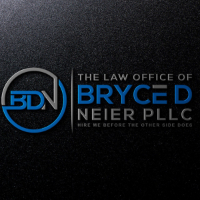Saint Pauls Criminal Lawyer, North Carolina
Bryce D. Neier
✓ VERIFIEDDivorce & Family Law, Criminal, Lawsuit & Dispute, Entertainment, Ethics
Confident and Competent Representation.
The Law Office of Bryce D. Neier is based in Fayetteville, North Carolina and I handle a wide range of civil matters. However, the focus of my practic... (more)
Andrew R. Dempster
✓ VERIFIEDCar Accident, Motorcycle Accident, Criminal, Wrongful Death, Workers' Compensation
Andrew R. Dempster Jr. "Drew" is a second generation attorney. Drew grew up in Fayetteville, North Carolina where he graduated from Pine Forest High S... (more)
Richard Townsend
Transportation & Shipping, Traffic, Criminal, Personal Injury
Status: In Good Standing
Arnold Locklear
Landlord-Tenant, Traffic, Family Law, Criminal
Status: In Good Standing Licensed: 51 Years
John R. Townsend
Accident & Injury, Personal Injury, Criminal, Estate
Status: In Good Standing Licensed: 46 Years
Stacy Julian Maynor
Traffic, Immigration, Criminal, Personal Injury
Status: In Good Standing Licensed: 15 Years
David F. Branch
Traffic, Motor Vehicle, Deportation, Criminal
Status: In Good Standing Licensed: 43 Years




